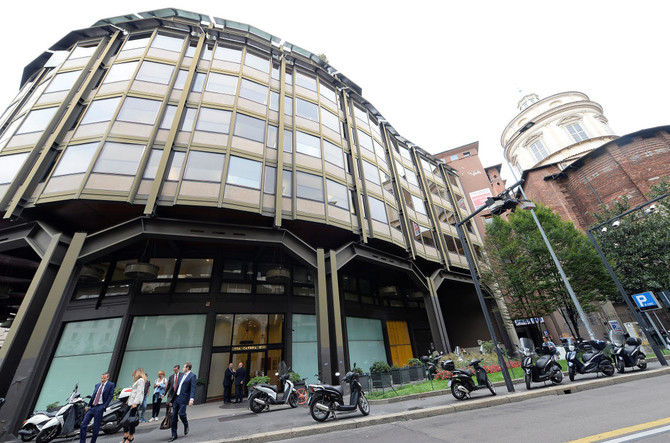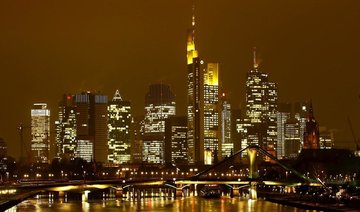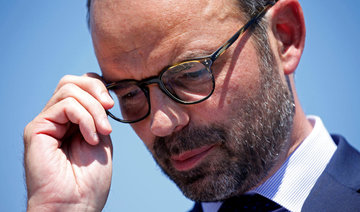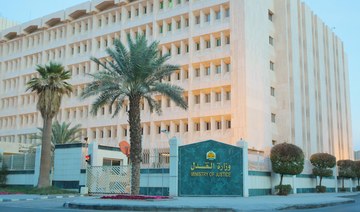LONDON/MILAN: Italian financiers who handle some of their country’s biggest deals out of London are moving to Milan, lured by bumper tax breaks at a time of deep uncertainty about Brexit, sources familiar with the plans said.
Investment bankers making the switch include Goldman Sachs’ co-head of Italy Francesco Pascuzzi, who also co-heads the global power and infrastructure team, and is looking to move early next year, the sources told Reuters.
Goldman and JPMorgan have started looking for new offices in Milan as their current bases, in the bustling heart of Milan, behind La Scala theater, are too small to house those seeking to relocate.
Goldman has about 20 people on its payroll in Milan – Italy’s financial capital – but expects headcount to double by 2019 as a result of Italian bankers returning from London, said the sources who declined to be named as the plans are confidential.
JPMorgan, which has a much bigger presence of about 160 staff, aims to significantly increase that number, they added.
“Hiring bankers from London used to be hard, no one was too keen to relocate as London was the place to be in finance. But things have changed,” said Leopoldo Attolico, the Italy country manager for Citi, which has 200 Milan staff and expects some workers to seek relocation from London.
“Now there is a sense of insecurity among non-UK nationals working in London and we have seen more interest in relocating to Milan, also thanks to new fiscal incentives.”
For those returning, Italy is offering significant perks, including a 50 percent income tax break. There is no mass exodus, however, with only dozens of Italians choosing to relocate so far.
But the shift points to a growing fragmentation of the European investment banking sector, which has been almost exclusively concentrated in London for the past 20 years.
As Brexit nears, more financiers are expected to shift to their home countries or to other financial hubs like Frankfurt and Paris. This would increasingly spell the end of a model that has allowed banks to streamline operations and costs by covering European markets out of Britain.
“You don’t move back to Italy to get a tax break, but it’s a good incentive when you’re thinking about your next step,” said former DBAY investment adviser Raffaele Petrone who returned to Italy in February to join private equity firm Armonia SGR.
Antonino Mattarella, nephew of Italian president Sergio Mattarella, is also among bankers making the switch. In February the 38-year-old, who spent 12 years in London at Goldman Sachs, became Bank of America’s Italy head in Milan.
Some private equity and hedge fund executives have shifted too.
Giuseppe Prestia, partner at Charterhouse, has just relocated to Milan after handling the private equity house’s Italian investments out of London for 13 years, and his firm is considering opening its own base in Italy, according to the sources.
London-based buyout funds Cinven and Advent have started beefing up their Milan subsidiaries, with Advent director Francesco Casiraghi being the first to relocate, they said.
Over the past two decades, thousands of graduates have left Italy due to a lack of work and career prospects, with London a favorite destination.
In a bid to reverse this brain drain the government has introduced the 50 percent, five-year income tax break for high-skilled Italian workers returning from abroad, as well as a flat tax rate of €100,000 on foreign income aimed at luring the wealthy of all nationalities.
Fabrizio Pagani, chief of staff for Italy’s finance minister, has been organizing international events to promote Milan as a financial center. “We have seen a lot of interest around these new fiscal policies, especially the one offering a 50 percent tax holiday,” he said.
Milan still has a long way to go to come close to rivaling London or New York. Its share of global foreign currency trading is 0.3 percent compared with 36.9 percent in London, according to the Bank for International Settlements, while Italy lags Britain, France and Germany for investment banking fees.
But there are other attractions for affluent financiers.
Known as a hub for world-class design, fashion and food, the city of 1.3 million people boasts 17 Michelin-starred restaurants among about 7,000 bars, cafes and eateries. It is also marketing itself as a modern banking center with the newly developed Porta Nuova financial district reshaping the skyline.
“More than €6 billion has been invested in office space in Italy over the past 24 months, a significant part of which went to Porta Nuova,” said Manfredi Catella, CEO of real estate investment firm Coima.
Apartments in prime areas like the Brera district cost about $12,000 per square meter versus an average of $25,000 in London’s exclusive Mayfair.
“For someone from London buying in Milan is like going to the supermarket,” said Vincenzo Albanese, CEO of estate agency Sigest.
Albanese said financial-sector workers in London had been sounding out the Milan property market over the past year with top-floor terraced apartments in high demand.
International schools are also reporting a pick-up in interest.
“We had a lot of interest from Italians working in London who decided it was time to come back. This has been a trend since Brexit,” said Chris Greenhalgh, principal at the British School of Milan.
Greenhalgh said Milan’s municipality recently gathered all international schools and asked them to provide details about their capacity as part of a pitch to lure people from London.
St. Louis School recently added a third school to its Milan network in expectation of a boom in demand from returning Italians, converting a former monastery into a 600-place school.
Ahead of Brexit, tax perks tempt Italian bankers back to la dolce vita
Ahead of Brexit, tax perks tempt Italian bankers back to la dolce vita

Pakistan pushes back deadline for expressions of interest to buy national airline

- The extension came a day before the expressions of interest had originally been due
- Pakistani tycoon Arif Habib, aviation-based company Gerry’s Group were among bidders
ISLAMABAD: Pakistan will push back the deadline for companies to express interest in buying national carrier Pakistan International Airlines to May 18, the country’s privatization minister said on Thursday.
The extension, announced in a statement by Minister for Investment and Privatization Abdul Aleem Khan, came a day before the expressions of interest had originally been due. He said 10 companies had already expressed an interest.
“The Board accorded approval for extension in the date for submission of interests on the request of interested parties,” he said, referring to the Privatization Commission Board he leads.
Pakistani tycoon Arif Habib and aviation-based company Gerry’s Group were among the 10 bidders looking to buy a majority stake in Pakistan International Airlines, Bloomberg News reported on Friday.
Arif Habib, Pakistan International Airlines and Gerry’s Group did not immediately respond to a Reuters request for comment.
Pakistan’s government has previously said it was putting on the block a stake of between 51 percent and 100 percent in the loss-making airline as part of reforms urged by the International Monetary Fund.
The disposal of the flag carrier is a step that past elected governments have steered away from as it is likely to be highly unpopular, but progress on the privatization will help cash-strapped Pakistan pursue further funding talks with the IMF.
Champion Sabalenka sets up Swiatek rematch in Madrid Open final

- Swiatek has a 6-3 record against Sabalenka but in their only match in the Spanish capital, the latter triumphed in three sets a year ago to claim the title
- In the men’s draw third seed Daniil Medvedev retired injured from his quarterfinal clash with Jiri Lehecka
MADRID: Defending Madrid Open champion Aryna Sabalenka produced a brilliant comeback from a set and a break down to beat Elena Rybakina and reach the final on Thursday.
The Belarusian second seed triumphed 1-6, 7-5, 7-6 (7/5) and will face world No. 1 Iga Swiatek on Saturday in a rematch of last year’s final.
The clinical Swiatek earlier eased past American Madison Keys with a comfortable 6-1, 6-3 victory.
In the men’s draw third seed Daniil Medvedev retired injured from his quarterfinal clash with Jiri Lehecka.
Kazakh Rybakina dominated a below-par Sabalenka in the first set with two breaks, but faced far stiffer resistance in the second after going a break up in the third game.
Two-time Australian Open champion Sabalenka put heavy pressure on the fourth seed’s serve and eventually cracked it to pull level at 4-4.
Rybakina hit back instantly but seemed rattled when serving for the match and world number two Sabalenka broke again for 5-5 and then claimed the next two games to force a deciding third set.
The players exchanged holds with just one break point reached — Sabalenka staying firm for a 6-5 advantage — before the tie-break.
Sabalenka, 25, sealed her victory with a typically powerful serve that Rybakina could not control.
The big-hitter had lost three of her last four clashes against the 24-year-old but emerged triumphant as they met on clay for the first time.
Swiatek has a 6-3 record against Sabalenka but in their only match in the Spanish capital, the latter triumphed in three sets a year ago to claim the title.
Dominant on clay, Swiatek barely put a foot wrong against Keys, making just eight unforced errors in the match to leave the 29-year-old American with virtually no chance.
“I’m really happy that I had such a solid game today,” Swiatek said on court after reaching her 11th WTA 1000 final.
“Madison is an amazing player with a really fast game and a big serve, so I wanted to focus on myself and I’m happy I was focussed.”
The top seed, triumphant at Doha and Indian Wells, started in unforgiving form, taking the first set in 31 minutes.
Keys was more competitive in the second but Swiatek took it with two breaks.
Russia’s Medvedev struggled through to the end of the first set against Lehecka with an apparent upper thigh problem, losing it 6-4 before retiring.
The Czech progressed to his first Masters 1000 semifinal, where he will face Felix Auger Aliassime, who received a walkover after top seed Jannik Sinner withdrew Wednesday with a hip problem.
“If I were to choose the way how to win this match, it wouldn’t be like that,” said Lehecka.
Medvedev took an off-court medical time-out after the fifth game, all holds of serve, and when he returned clearly had problems moving freely around the court.
The world number four saved two break points to hold for a 4-3 lead as Lehecka floundered, despite playing through obvious pain.
The Czech, who knocked-out Rafael Nadal on Wednesday, settled down and capitalized on Medvedev’s woes to break decisively in the ninth game for a 5-4 lead.
Medvedev won just four of the last 16 points before deciding to call it a night, with fans left disappointed. The other men’s quarterfinal set for Thursday had been canceled after Sinner’s withdrawal.
The 28-year-old Medvedev is the defending champion at the Italian Open, which starts next week, while the French Open, the season’s second Grand Slam event, gets underway in just over three weeks’ time.
“It would be good to come back (to Rome) after winning last year, but (I) just need to see what it is, because right now I basically don’t know if it’s very serious, just serious, or not serious — no idea,” Medvedev told reporters.
Taylor Fritz will face Andrey Rublev in the other semifinal on Friday, after the Russian ousted home favorite Carlos Alcaraz on Wednesday.
A village in Pakistan keeps business and tradition of pottery alive

- At least 150 families are engaged in pottery-making in Tehi, village in Talagang district of Punjab province
- Young craftsmen are trying to expand businesses by introducing innovation, delivering customized products
ISLAMABAD: Sitting in the veranda of his house, Muhammad Shabbir picked up a lump of clay and set it on a potter’s wheel as it spun before him, producing a whirring sound. A few meters away in a large courtyard, his two sons kneaded clay and put finished pots out to dry in the sunlight before they would be taken to a furnace to bake.
The scene is from Shabbir’s home in Tehi village of district Talagang in Pakistan’s vast Punjab province, some 150 kilometres from Pakistan’s federal capital, Islamabad, where over 150 families are involved in pottery as their primary source of livelihood. They have learnt the techniques and styles from their ancestors and continue to uphold the age-old tradition of fashioning clay wares by hand.
Around the world, pottery was replaced at the beginning of the 20th century by glass, aluminum, tin and plastic, materials all cheaper and better suited to most tasks than clay.
But Shabbir and his two sons remain steadfast in keeping the craft alive even as it no longer earns them enough to live a prosperous life.
“I have been doing this for the last twenty years,” Shabbir told Arab News. “I used to see my elders, first they used to make them [pots] and now I have engaged my sons to work in the business.”
A special, fine-grained soil sourced from a nearby village is used to make the pots, Shabbir said, which was mixed with sand and shaped into dough to be turned into different designs.
“We knead the mud, make a dough and bring it to the potter’s wheel and then design it into a pot. We put them out to dry and then bake them in the furnace to get the final product,” Shabbir explained.
Across the streets of Tehi, clay pots of different shapes and sizes were displayed at wholesale shops from where they are bought by locals, traders in Punjab and also exported to retailers across the country.
“GOVERNMENT SUPPORT”
Craftsmen in the village make the clay pots five months in a year, three months in summer and two in winter, and pause work in the rainy season when the weather is humid and frequent rains drench the giant clay furnaces used to bake the utensils.
Like Shabbir’s sons, many children in the village started learning pottery-making at a very young age to lend a helping hand to their elders.
Shabbir said his two sons had ambitions to leave the business and graduated high school but could not find jobs.
“We went to school, did matriculation, applied for a job but didn’t get it, and then decided why shouldn’t we learn the craft of our forefathers and do it,” Muhammad Kabeer, a young potter and Shabbir's son, told Arab News as he prepared dough in a barrel.
Kabeer and his younger brother said they wanted to expand their business and the family’s earnings by introducing innovation in the field and making customized pots on order.
“If a customer comes with their own designs, we give them two, three days’ time to deliver the order,” Kabeer said.
The family mainly makes clay pots for wholesalers and while loyal customers do keep ordering, Shabbir said the pottery business had been impacted by inflation and high transportation rates, forcing many people to switch to other lines of work.
Pakistan has been beset by inflation above 20% since May 2022, registering a high of 38 percent in May 2023 mainly due to high food and energy costs. Inflation eased off to 17.3%, the lowest since May 2022, on a year-on-year basis in April 2024 from 20.7% recorded in March 2024 and 36.4% in April 2023, official data issued this week.
His father added: “We work for five months and have to make do with those earnings for the whole year,” Shabbir lamented.
Kabir added:
“We sell them [the pots] to wholesalers and they pay us labor cost only ... If we get the government’s support, we can really expand this business and provide jobs to our friends as well.”
Bayer Leverkusen’s record unbeaten march continues with a 2-0 win at Roma in Europa League

- No club from Europe’s five biggest leagues — in Germany, England, Italy, Spain and France — has had a longer unbeaten streak
- The result also marked a measure of revenge for Leverkusen — since Roma had beaten the German club in this exact same stage last season for their last defeat in Europe
- In the other semifinal, Atalanta drew 1-1 at Marseille
ROME: An imposing stadium in a major foreign capital did nothing to stop Bayer Leverkusen’s record unbeaten march across Europe.
The freshly crowned first-time Bundesliga champions silenced the Stadio Olimpico with a 2-0 win at Roma in the first leg of the Europa League semifinals on Thursday to extend their unbeaten streak to 47 matches across all competitions.
No club from Europe’s five biggest leagues — in Germany, England, Italy, Spain and France — has had a longer unbeaten streak.
“We take things game by game and we are not thinking about being unbeaten,” Leverkusen midfielder Amine Adli said. “We are not thinking about making history or things like that — that’s why we are playing like this and the team is strong. We just want to enjoy ourselves.”
The result also marked a measure of revenge for Leverkusen — since Roma had beaten the German club in this exact same stage last season for their last defeat in Europe.
“We know it is not easy to play here,” Adli said. “We played a very serious game.”
Leverkusen’s last loss across all competitions was a 3-0 defeat to Bochum in the final round of last season’s Bundesliga nearly a year ago — on May 27, 2023.
Roma were dangerous with an early header off the crossbar from Romelu Lukaku. But then Leverkusen scored on the counterattack seven minutes later.
A failed back pass from Roma right back Rick Karsdorp under pressure from Alex Grimaldo on the left flank resulted in a 3-on-1 for Leverkusen. Grimaldo then passed to Florian Wirtz, who calmly slotted in from the center of the area.
Midfielder Robert Andrich added another goal for Leverkusen in the 73rd with a long-range shot — just as Roma had been threatening on the other end.
In the other semifinal, Atalanta drew 1-1 at Marseille.
The second legs will be held next Thursday, with the final to be held in Dublin on May 22.
Leverkusen has won only one European trophy: the 1988 UEFA Cup, which was then predecessor to the Europa League. Its only other European final came in the 2002 Champions League, won by Real Madrid.
Roma are aiming to qualify for their third consecutive European final after winning the Europa Conference League in 2022 and losing last year’s Europa League final to Sevilla in a penalty shootout.
Daniele De Rossi replaced Jose Mourinho as Roma’s coach in January.
The Giallorossi hadn’t lost a European knockout stage game at home in seven years — since getting beat 1-0 by Villarreal in the 2017 Europa League.
Roma fans’ pre-match choreography across one entire end of the stadium spelled out the word “AVANZIAMO” (“Let’s advance”). But Roma now face an uphill challenge to eliminate Leverkusen, who haven’t lost all season.
Marseille-Atalanta
Marseille’s players were treated to an ovation at Stade Velodrome from their hard-to-please fans after the draw with Atalanta — who eliminated Liverpool in the quarterfinals.
Atalanta took the lead in the 11th when striker Gianluca Scamacca hit a low shot into the bottom corner after reading Teun Koopmeiners’ clever pass.
But Marseille equalized in the 20th when central defender Chancel Mbemba collected Geoffrey Kondogbia’s pass and his fine curling shot from the edge of the penalty area hit the left post and rolled in.
The second half was almost entirely one-way traffic as Marseille pushed forward. Winger Ismaïla Sarr had a goal disallowed for an offside following a video review and substitute Azzedine Ounahi hit the crossbar with a curling shot in the 73rd.
Europa Conference League
In the third-tier competition semifinal first legs, Aston Villa’s hopes of reaching a first European final since 1982 were diminished with a 4-2 home loss to Olympiakos, the first defeat at Villa Park in the European campaign for the last English club in European competitions.
Villa came back from 2-0 down but were not able to answer Ayoub El Kaabi’s third goal of the game. The striker converted from the penalty spot to make it 3-2 for his eighth goal in the competition this season. Santiago Hezze finished the scoring before Douglas Luiz wasted a penalty for Villa.
Olympiakos are aiming to play on home soil in the May 29 final in Athens.
Earlier, El Kaabi scored twice within a half hour put the visitors in charge.
In Florence, substitute M’Bala Nzola netted in stoppage time for last-year’s runner-up Fiorentina to secure a 3-2 victory over 10-man Club Brugge.
Brugge’s Raphael Onyedika was sent off after receiving his second yellow card on the hour when the Italian club was 2-1 up but the visitors equalized through Igor Thiago to complete a counter just minutes later.
Riccardo Sottil put Fiorentina ahead early on, Brugge captain Hans Vanaken answered with an equalizer from the penalty spot and then Andrea Belotti restored the lead for Fiorentina on a rebound.
More than 2,100 people have been arrested during pro-Palestinian protests on US college campuses

- At least 50 incidents of arrests have happened at 40 different US colleges or universities since April 18
- The demonstrations began at Columbia on April 17 with students calling for an end to the Israel-Hamas war
LOS ANGELES: Police have arrested more than 2,100 people during pro-Palestinian protests at college campuses across the United States in recent weeks, sometimes using riot gear, tactical vehicles and flash-bang devices to clear tent encampments and occupied buildings. One officer fired his gun inside a Columbia University administration building while clearing out protesters camped inside, a prosecutor’s office confirmed.
No one was injured by the officer’s actions late Tuesday inside Hamilton Hall on the Columbia campus, according to Doug Cohen, a spokesperson for District Attorney Alvin Bragg’s office. Cohen said Thursday that the gun did not appear to be aimed at anyone, and that there were other officers but no students in the immediate vicinity. Bragg’s office is conducting a review, a standard practice.
More than 100 people were taken into custody during the Columbia crackdown, just a fraction of the total arrests stemming from recent campus protests over the Israel-Hamas war. A tally by The Associated Press on Thursday found at least 50 incidents of arrests at 40 different US colleges or universities since April 18.
Early Thursday, officers surged against a crowd of demonstrators at University of California, Los Angeles, ultimately taking at least 200 protesters into custody after hundreds defied orders to leave, some forming human chains as police fired flash-bangs to break up the crowds. Police tore apart a fortified encampment’s barricade of plywood, pallets, metal fences and dumpsters, then pulled down canopies and tents.
Like at UCLA, tent encampments of protesters calling on universities to stop doing business with Israel or companies they say support the war in Gaza have spread across other campuses nationwide in a student movement unlike any other this century. Iranian state television carried live images of the police action at UCLA, as did Qatar’s pan-Arab Al Jazeera satellite network. Live images of Los Angeles also played across Israeli television networks.
Israel has branded the protests antisemitic, while Israel’s critics say it uses those allegations to silence opposition. Although some protesters have been caught on camera making antisemitic remarks or violent threats, protest organizers — some of whom are Jewish — call it a peaceful movement to defend Palestinian rights and protest the war.
President Joe Biden on Thursday defended the right of students to peaceful protest but decried the disorder of recent days.
Opinion
This section contains relevant reference points, placed in (Opinion field)
The demonstrations began at Columbia on April 17 with students calling for an end to the Israel-Hamas war, which has killed more than 34,000 Palestinians in the Gaza Strip, according to the Health Ministry there. Israel launched its offensive in Gaza after Hamas militants killed about 1,200 people, mostly civilians, on Oct. 7 and took roughly 250 hostages in an attack on southern Israel.
On April 18, the NYPD cleared Columbia’s initial encampment and arrested roughly 100 protesters. The demonstrators set up new tents and defied threats of suspension, and escalated their actions early Tuesday by occupying Hamilton Hall, an administration building that was similarly seized in 1968 by students protesting racism and the Vietnam War.
Roughly 20 hours later, officers stormed the hall. Video showed police with zip ties and riot shields streaming through a second-floor window. Police had said protesters inside presented no substantial resistance. At some point, the officer’s gun went off inside the building. Cohen, the DA’s spokesperson, did not provide additional details on the incident, which was first reported by news outlet The City on Thursday. The NYPD did not immediately respond to AP’s request for comment.
The confrontations at UCLA also played out over several days this week. UCLA Chancellor Gene Block told alumni on a call Thursday afternoon that the trouble started after a permitted pro-Israel rally was held on campus Sunday and fights broke out and “live mice” were tossed into the pro-Palestinian encampment later that day.
In the following days, administrators tried to find a peaceful solution with members of the encampment and expected things to remain stable, Block said.
That changed late Tuesday, he said, when counterdemonstrators attacked the pro-Palestinian encampment. Campus administrators and police did not intervene or call for backup for hours. No one was arrested that night, but at least 15 protesters were injured. The delayed response drew criticism from political leaders, including California Gov. Gavin Newsom, and officials pledged an independent review.
“We certainly weren’t thinking that we’d end up with a large number of violent people, that hadn’t happened before,” Block said on the call.
By Wednesday, the encampment had become “much more of a bunker” and there was no other solution but to have police dismantle it, he said.
The hourslong standoff went into Thursday morning as officers warned over loudspeakers that there would be arrests if the crowd — at the time more than 1,000 strong inside the encampment as well as outside of it — did not disperse. Hundreds left voluntarily, while another 200-plus remained and were ultimately taken into custody.
Meanwhile, protest encampments at other schools across the US have been cleared by police — resulting in more arrests — or closed up voluntarily. But University of Minnesota officials reached an agreement with protesters not to disrupt commencements, and similar compromises have been made at Northwestern University in suburban Chicago, Rutgers University in New Jersey and Brown University in Rhode Island.
Ariel Dardashti, a graduating UCLA senior studying global studies and sociology, said no student should feel unsafe at school.
“It should not get to the point where students are being arrested,” Dardashti said on campus Thursday.


















